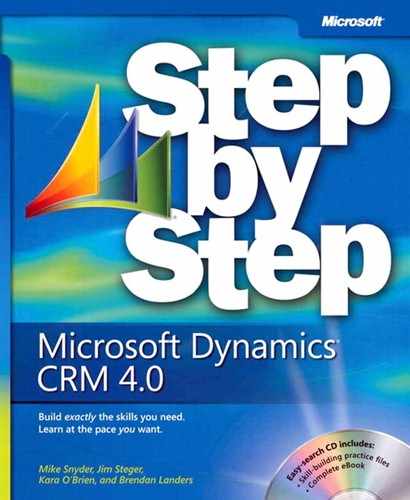A case represents any service request or support incident for a customer in Microsoft Dynamics CRM. Customer service teams can use cases to manage customer requests and problems.
Customer service managers can analyze case data to identify frequently occurring customer issues, improve product or service offerings, and streamline the time it takes service representatives to resolve issues.
By default, Microsoft Dynamics CRM requires that a case be assigned a Subject value. The subject tree allows you to categorize sales and support records in Microsoft Dynamics CRM and should be configured by a system administrator.
Follow-up activities ensure that steps are taken to resolve a case. A follow-up activity might be a simple task to send a catalog or update a customer’s address, or it could be more involved, such as a series of phone calls with the customer, service appointments, or research tasks.
By tracking activities to a case, customer service managers can add the duration of each completed activity to the total time spent on the case. This total is automatically calculated in the Resolve Case dialog box.
Maintaining the status value of each case accurately is important to ensure that new issues are addressed in a timely manner and resolved as quickly as possible.
Cases can be marked as Resolved or Canceled to remove them from the active case list. Updating a case to Resolved or Canceled status makes the case read-only in Microsoft Dynamics CRM; however, cases in these statuses can be reactivated if the customer reports the problem again or additional edits to the case are necessary.
